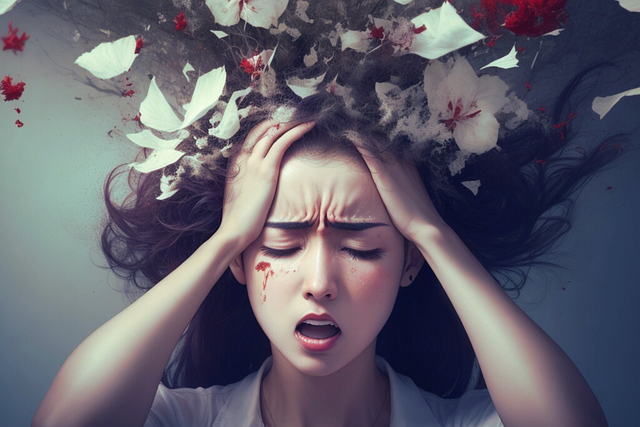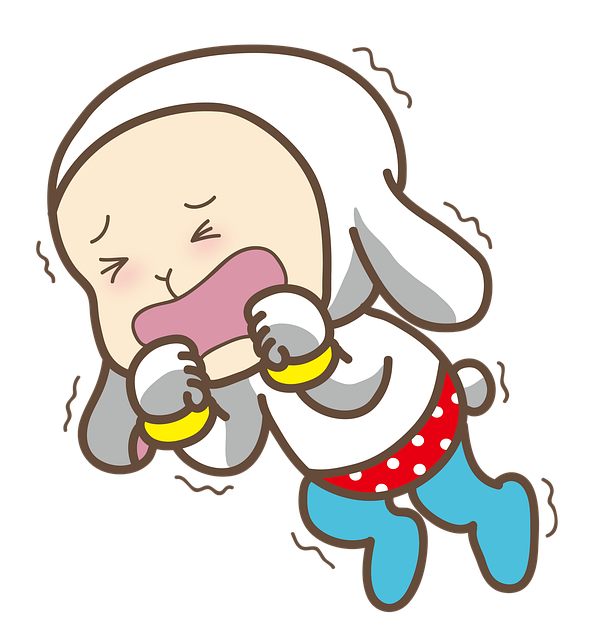Chronic anxiety, driven by genetics, environment, and medical factors, disrupts daily life. Effective anxiety treatment combines therapy (CBT, exposure therapy) with medications (SSRIs, SNRIs, benzodiazepines). CBT changes thought patterns and behaviors, while exposure therapy confronts fears. Mindfulness-based therapies like MBSR offer additional relief. Yoga and meditation enhance resilience. Holistic lifestyle changes including exercise, sleep, and mindfulness are powerful anxiety treatments.
Chronic anxiety is a prevalent condition affecting millions worldwide. This article explores comprehensive therapy options to manage this persistent concern. We delve into understanding the symptoms and underlying causes of chronic anxiety, highlighting its impact on daily life. Conventional approaches include medication and psychotherapy. Popular choices like Cognitive Behavioral Therapy (CBT) and Exposure Therapy offer targeted solutions. Additionally, we examine alternative treatments like mindfulness, yoga, and meditation, emphasizing their role in cultivating resilience and calmness.
Understanding Chronic Anxiety: Symptoms and Causes

Chronic anxiety is a persistent condition that can significantly impact an individual’s daily life. It’s characterized by excessive and uncontrollable worry or fear, often accompanied by physical symptoms like restlessness, fatigue, muscle tension, and difficulty concentrating. People with chronic anxiety may experience intrusive thoughts, panic attacks, or an overwhelming sense of dread, which can interfere with their ability to function normally.
Several factors contribute to the development of chronic anxiety. Genetic predisposition plays a role, suggesting that some individuals are genetically susceptible to developing anxiety disorders. Environmental triggers, such as traumatic life events, stress, or significant changes in one’s life, can also trigger chronic anxiety. Additionally, certain medical conditions and medications may exacerbate existing anxiety symptoms, underlining the importance of seeking professional help for effective anxiety treatment.
Conventional Therapy Approaches for Anxiety Disorders

Anxiety disorders are commonly treated using a combination of conventional therapy approaches. One of the most widely recognized and effective methods is anxiety treatment through cognitive-behavioral therapy (CBT). CBT helps individuals identify and change unhelpful thought patterns and behaviors contributing to anxiety, teaching them coping strategies to manage symptoms effectively. Exposure therapy is another conventional approach where patients are gradually exposed to anxiety-provoking situations in a safe environment, allowing them to confront and overcome their fears.
Medications also play a significant role in anxiety treatment. Selective serotonin reuptake inhibitors (SSRIs) and serotonin-norepinephrine reuptake inhibitors (SNRIs) are commonly prescribed to reduce anxiety symptoms by increasing levels of certain brain chemicals. Additionally, benzodiazepines may be used for short-term relief but are generally avoided for long-term anxiety treatment due to the risk of dependence. These conventional methods offer evidence-based solutions to help individuals manage and overcome chronic anxiety disorders.
Cognitive Behavioral Therapy (CBT): A Popular Choice

Cognitive Behavioral Therapy (CBT) is a popular and effective choice for anxiety treatment. This therapy focuses on identifying and changing negative thought patterns and behaviors that contribute to chronic anxiety. By challenging distorted thinking, CBT helps individuals develop healthier coping mechanisms, reducing anxious symptoms and improving overall well-being.
The approach is structured and goal-oriented, working with clients to set achievable targets and track progress. Through various techniques, such as mindfulness exercises and exposure therapy, CBT empowers people to face their fears and manage anxiety in a more constructive way. This evidence-based method has proven successful in treating various forms of anxiety, making it a go-to option for many seeking effective anxiety treatment.
Exposure Therapy: Facing Fear Head-On

Exposure therapy is a powerful technique within the realm of anxiety treatment, designed to help individuals confront and overcome their fears in a safe and controlled manner. This approach involves gradually exposing the person to situations or objects that trigger anxiety, enabling them to learn that these feared outcomes are unlikely to occur. By facing their anxieties head-on, patients can develop coping strategies and build resilience, leading to significant improvements in managing chronic anxiety symptoms over time.
The process begins with identifying specific phobias or anxious triggers and then creating a hierarchy of fear-provoking situations. Therapy sessions involve stepping through this hierarchy, starting from less anxious-inducing scenarios and progressively moving towards more challenging ones. With each successful exposure, individuals gain confidence and learn to regulate their emotional responses, ultimately reducing the intensity of anxiety reactions in various aspects of their daily lives.
Mindfulness-Based Therapies for Calmness

Mindfulness-based therapies, such as Cognitive Behavioural Therapy (CBT) and Mindfulness-Based Stress Reduction (MBSR), have gained popularity as effective anxiety treatments. CBT focuses on identifying and changing negative thought patterns that contribute to anxiety, teaching individuals coping strategies to manage symptoms effectively. On the other hand, MBSR emphasizes mindfulness meditation, helping people stay present and non-judgmental in response to anxious thoughts and feelings.
These approaches encourage individuals to cultivate awareness of their thoughts, emotions, and physical sensations without reacting impulsively. By regularly practicing mindfulness techniques, participants learn to recognize when they’re feeling anxious, allowing them to step back from their reactions and respond more calmly. Research suggests that these therapies can significantly reduce anxiety symptoms over time, offering lasting benefits for those seeking long-term relief from chronic anxiety.
Alternative Treatments: Yoga, Meditation, and More

For those seeking alternative ways to manage chronic anxiety, activities like yoga and meditation offer promising paths to tranquility. Yoga combines physical postures with controlled breathing and mindfulness, helping individuals connect their bodies and minds in a holistic way. Regular practice can reduce stress hormones, lower blood pressure, and cultivate a sense of calm that carries over into daily life. Similarly, meditation cultivates present-moment awareness, teaching individuals to observe anxious thoughts without judgment and redirect their focus to the here and now.
These practices aren’t just about stilling the mind; they empower people with tools to navigate stressful situations more effectively. By integrating yoga and meditation into their routines, individuals can enhance their resilience to anxiety, improve their overall mental well-being, and discover a greater sense of inner peace. It’s important to note that while these alternative treatments are beneficial, they often work best in conjunction with other evidence-based therapies for chronic anxiety.
Building Resilience: Lifestyle Changes for Anxiety Management

Anxiety management goes beyond therapy sessions; it’s a holistic process that includes lifestyle changes. Building resilience is a key aspect where individuals can take control and reduce their anxiety symptoms. Simple yet powerful strategies such as regular exercise, meditation, and sufficient sleep can significantly impact mental health. Engaging in physical activities releases endorphins, reduces stress hormones, and improves overall well-being, making it an effective anxiety treatment.
Lifestyle modifications also involve adopting healthy eating habits, setting boundaries for work and personal life, and practicing mindfulness. These changes create a sense of stability and control, empowering individuals to navigate stressful situations better. By implementing these strategies consistently, one can enhance their resilience, improve mental fortitude, and effectively manage chronic anxiety.
